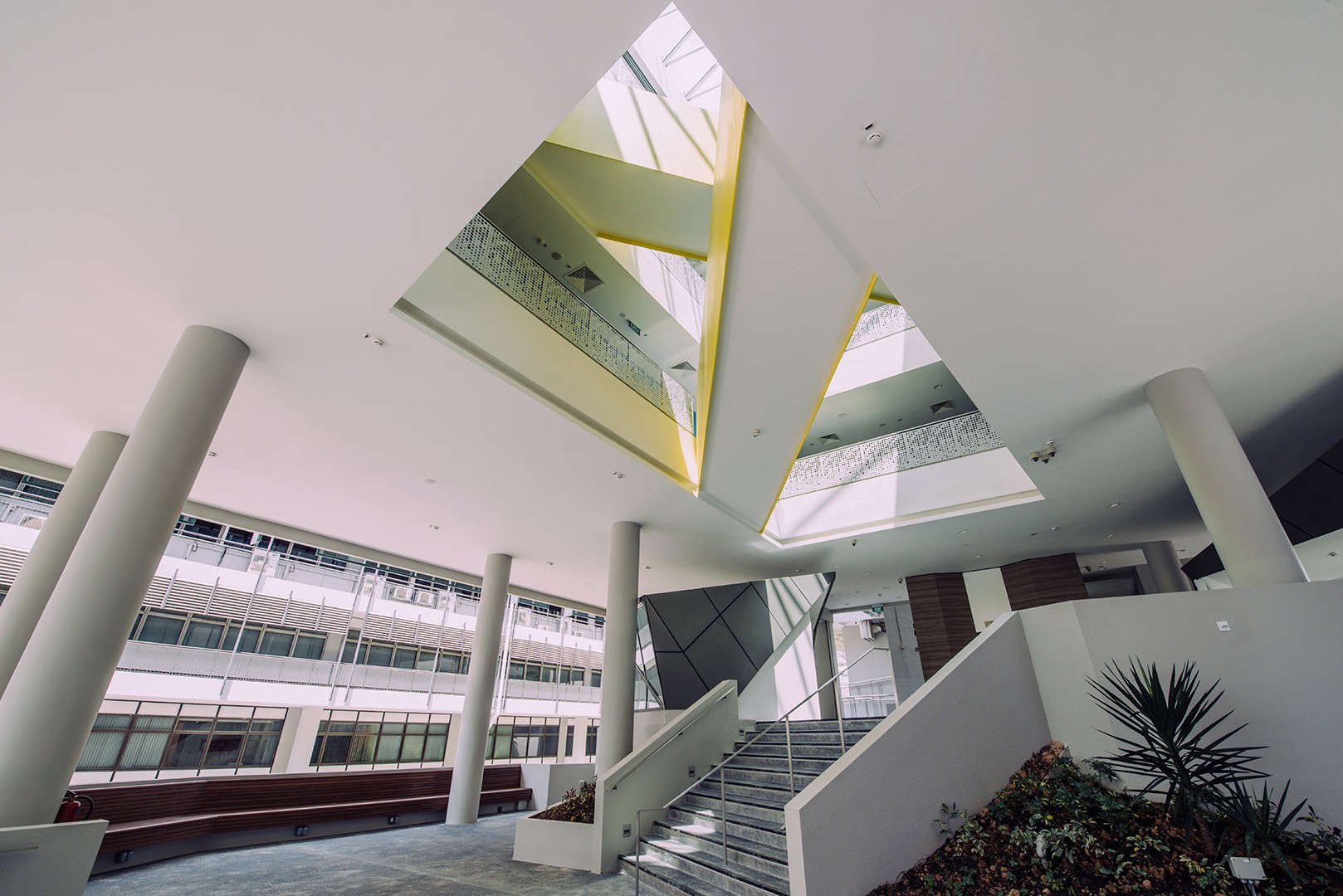NUS bags top BCA award for green buildings
NUS has bagged the Green Mark (GM) Platinum Champion Award by the Building and Construction Authority (BCA) – the top award for green buildings given out by the industry regulator. The award comes after NUS achieved 50 GM Gold and above certifications for developments across its campuses. The 50 GM certifications include 40 GM Platinum, six GM GoldPLUS and four GM Gold certifications.
NUS joins a small handful of entities to have ever won the GM Platinum Champion Award, including local property developers CapitaLand and City Developments. The University has also come a long way from being previously awarded the GM Champion Award in 2012 for achieving 10 GM Gold and above certifications.
NUS’ Vice President (Campus Infrastructure), Mr Koh Yan Leng, said: “We are honoured to be accorded this year’s GM Platinum Champion Award by BCA. The accolade affirms our progress in realising our vision of a carbon neutral campus. Our strategic priority is to achieve the highest standards of environmental sustainability and integrate environmental sensitive design into our campus developments. With this, we hope to significantly increase the total number of Super Low Energy and Zero Energy buildings on campus by 2030.”
Creating a carbon neutral campus: More Super Low Energy Buildings and Zero Energy Buildings to come
NUS targets to have a carbon neutral campus by 2030, and in its quest, it has adopted a mix of sustainable design and construction strategies to lower its carbon footprint. To decarbonise the campus developments, NUS is ramping up the number of Super Low Energy Buildings (SLEBs) and Zero Energy Buildings (ZEBs).
To date, there are three GM Platinum ZEBs and eight GM Platinum SLEBs. The three ZEBs are SDE 4, Block E2A and the Frontier. These ZEBs are the best-in-class energy performing Green Mark Buildings with all energy consumption, including plug load, supplied from a renewable source. For example, SDE4 has more than 1,200 solar photovoltaic panels installed on its overhanging rooftop to supply renewable energy. This roof is also designed to give shade to the building to reduce its cooling needs.
NUS is planning to install up to nine megawatt-peak (MWp) of renewable solar energy capacity across the whole campus on about 60 buildings, equivalent to powering 2,000 four-room HDB flats.
NUS applies passive design principles in ZEBs to reduce energy required to cool buildings in Singapore’s hot and humid climate. Passive design harnesses local climate and site conditions to meet users’ human health and well-being needs while minimising mechanical cooling. For instance, much of the Frontier canteen is naturally ventilated and integrated with the surrounding green landscape. Staff and students can enjoy gentle breeze flowing down from the green lawn into the canteen. The canteen is also well-connected to surrounding buildings, making it a vibrant place for interactions.
Energy-efficient cooling systems
To beat the heat, NUS has embarked on a multi-year effort to upgrade and consolidate centralised cooling systems, achieving 40 per cent more energy savings than traditional air-conditioning systems.
Buildings such as Frontier and Block E2A tap on these energy efficient chilled water plants to meet their cooling needs. Other energy-saving initiatives include energy efficient LED lightings and optimisation of air-conditioning systems. Frontier and Block E2A also extensively use certified green products, including low volatile organic compounds (VOC) paints and finishes that are not harmful to people or the environment.
With these various sustainable design strategies, NUS decreased energy use by 4 per cent and water use by 3 per cent from FY2016 to FY2019. This is despite expanding its developed area by 6 per cent during this period.
Two other SDE buildings are currently undergoing retrofitting and adaptive re-use to become ZEBs. The university community can expect to see more such ZEBs and SLEs in the works as NUS charts its way towards a more sustainable future.
By NUS Office of Estate Development




